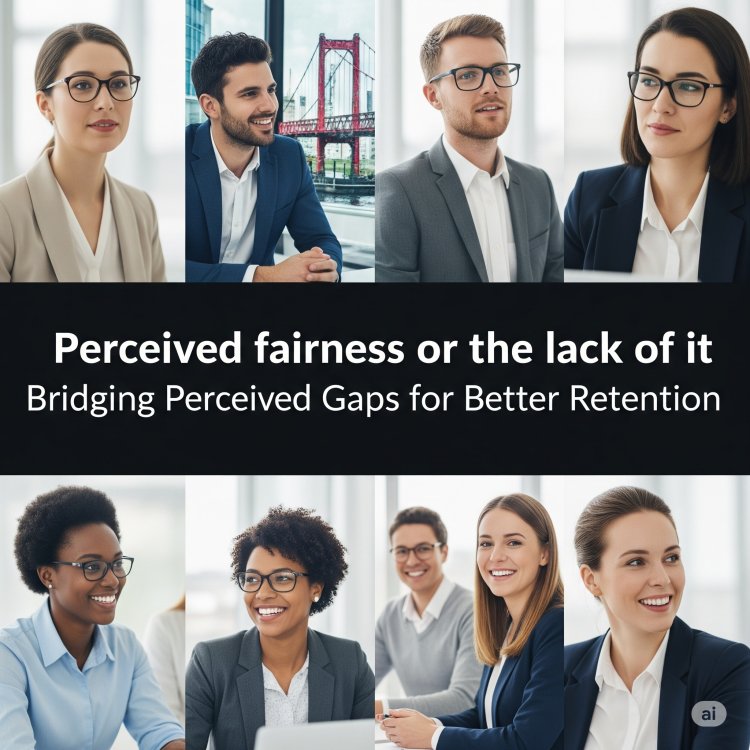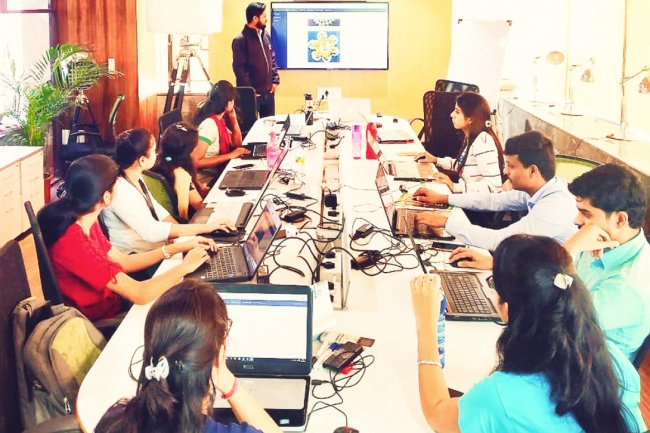Perceived fairness or the lack of it Bridging Perceived Gaps for Better Retention Dr. Shilpa Shinde, Associate Professor

In today’s evolving work culturemarked by remote setups, hybrid teams, and rapidly shifting valuesretaining employees is no longer just about offering better pay or perks. What often makes or breaks the decision to stay is something less visible but deeply felt: perceived fairness. Employees now assess not just compensation, but the fairness in how they’re treated, how opportunities are distributed, how decisions are communicated, and how consistently the organization lives its values. When these perceptions are fractured, trust is lost, and retention suffers.
At the emotional core of many resignations lies a quiet erosion of belief in the system. Employees, from gig workers to knowledge professionals, want to feel respected, heard, and seen. It’s not uncommon to hear statements like, “It wasn’t the workloadit was how I was made to feel invisible.” In the Indian context, this sentiment is rising sharply, especially as younger workersGen Z and millennialsexpect transparency, fairness, and purpose. When employees sense favouritism in promotions, unequal access to upskilling, or unclear communication, the perception of unfairness takes root, often becoming the first crack in the retention wall.
This challenge is further complicated by structural inequities. Take gig economy workers, who rely on opaque algorithms to allocate work, or employees from marginalized backgrounds who face unspoken biases in promotions and feedback. Gender, caste, region, and language differences still shape access to opportunities in subtle but powerful ways. When employees feel that their effort doesn’t translate into equal respect or opportunity, disengagement becomes inevitable. The real question then becomes: are we addressing attrition, or just managing its symptoms?
To bridge this gap, organizations must move from policy to practice. Transparent communication is keyemployees should not just be told what decisions are made, but why they are made. Access to growth opportunities must be equitable, ensuring that visibility is not limited to the most assertive voices in the room. Feedback mechanisms should allow safe expression of grievances, followed by timely action. Appraisal systems must evolve from measuring attendance and seniority to capturing outcomes, creativity, and collaboration. Most importantly, leadership must be trained to identify and respond to subtle signs of disengagement and perceived bias.
Building a culture of fairness is not a checklist itemit is an everyday practice. It shows up in meeting dynamics, credit sharing, email tone, and team structures. Progressive organizations are beginning to act on this insight. Some are implementing “fairness audits,” tracking employee sentiment on bias, inclusion, and trust. Others are using technology to eliminate bias in performance evaluations. Co-creating policies with employees, particularly those from underrepresented groups, is becoming a forward-thinking strategy that enhances both loyalty and innovation.
The goal is simple but powerful: employees must not only be treated fairlythey must feel it. And that feeling cannot be fabricated through wellness programs or casual Fridays. It emerges when people experience consistent respect, equal treatment, and open dialogue. As we look at retention not just through the lens of business continuity, but human dignity, the focus must shift from efficiency to empathy, from procedure to perception.
This is a moment to reflect and act. Are we truly retaining peopleor just their output? Are our workplaces human-centric or still trapped in legacy hierarchies? Are voices from all sections of society being equally heard in policy rooms and performance reviews? As a nation and as organizations, we must confront these ethical questions honestly. Because fairness, when felt genuinely, has the power to transform not only workspaces but society itself.
Leaders, HR professionals, and policymakers must go beyond reactive retention strategies and begin investing in systems where fairness is foundational, not optional. Let this conversation spark awareness, encourage reforms, and build accountability. After all, a workplace where fairness is perceived, experienced, and lived is not just good for businessit’s a step toward a more just society.
What's Your Reaction?




















